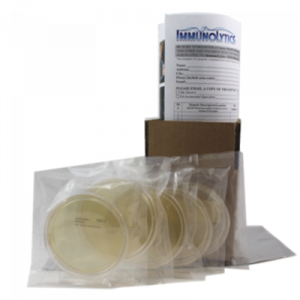Description
Spectra Cell’s flagship diagnostic test is the Micronutrient Test (MNT), which measures 31 specific micronutrients—vitamins, minerals, amino acids, antioxidants, and metabolites—and how they affect cellular function in a person.
Vitamins
- Vitamin A
- Vitamin B1
- Vitamin B2
- Vitamin B3
- Vitamin B6
- Vitamin B12
- Biotin
- Folate
- Pantothenate
- Vitamin C
- Vitamin D
- Vitamin K
Minerals
- Calcium
- Magnesium
- Manganese
- Zinc
- Copper
Amino Acids
- Asparagine
- Glutamine
- Serine
Antioxidants
- Alpha Lipoic Acid
- Coenzyme Q10
- Cysteine
- Glutathione
- Selenium
- Vitamin E
Carbohydrate Metabolism
- Chromium
- Fructose Sensitivity
- Glucose-Insulin
- Metabolism
Metabolites
- Choline
- Inositol
- Carnitine
SPECTROX™
for Total Antioxidant Function
IMMUNIDEX™
Immune Response Score
If someone is deficient in a particular nutrient, the MNT will uncover this deficiency so that it can be effectively treated, thus facilitating real prevention. Not only will correcting intracellular deficiencies slow aging and degenerative disease progression, but it can also prevent as well as repair cellular dysfunction, and by extension disease.
What makes the MNT particularly relevant is that it takes into consideration a person’s biochemical individuality when assessing nutritional status. The MNT is performed intracellularly—it is not a static serum measurement—thus taking into account cellular absorption, metabolism and utilization in its nutritional evaluation of cell function, which correlates with tissue health and systemic health. Serum (extracellular) nutrients fluctuate wildly, are only a snapshot and tell you nothing about the functional health of cells. The MNT measures nutrient status, in the context of cellular function, over a period of 4-6 months. No other nutritional test compares.
There are two key principles on which the SpectraCell® Micronutrient Test (MNT) is based:
- Micronutrient deficiencies cause disease.
- Targeted repletion is the solution.
Micronutrients are the vitamins, minerals, antioxidants and chemicals our bodies use to perform every biological function necessary to survive and thrive. If we become deficient, we get sick. But the manifestations of nutrient deficiency are incredibly diverse.
Case in point: magnesium deficiency. This mineral is a cofactor for over 300 metabolic reactions in the body. A deficiency could manifest in any number of ways:
- No clinical symptom: Mg deficiency can lower bone density which is often asymptomatic.
- Subtle clinical symptom: Mg deficiency can increase bone pain and cause fatigue.
- Acute clinical symptom: Mg deficiency can result in a bone fracture.
The point here is that nutrient deficiencies manifest very differently. If there is not an obvious or acute issue, it would be referred to as a subclinical micronutrient deficiency. When untreated, subclinical deficiencies will usually progress to overt sometimes critical deficiencies. Spectracell’s MNT allows you to determine nutrient deficiencies regardless of how they manifest clinically. This is important because in many cases the clinical symptoms are subtle (fatigue, pain, immune dysfunction) but often become more pronounced over time.
What about other causes of disease?
Actually, many of the commonly accepted causes of disease—inflammation, gut health, genetics—are really manifestations of micronutrient deficiency.
Inflammation – exacerbated by micronutrient deficiencies. Antioxidants quell inflammation if present in adequate amounts. Deficiencies will cause inflammatory processes to run amok.
Poor gut health – contributes to micronutrient deficiency. Bacteria in our gut make B vitamins and facilitate absorption of nutrients. Poor gut health will certainly cause micronutrient deficiencies.
Low immunity – often caused by micronutrient deficiencies. Several micronutrients are needed to regulate the complicated immune network which protects us against pathogens and endogenous cancer cells.
Environmental Toxins – our body's detoxifications systems run on micronutrients, not enough means we can't detoxify. Toxins in our environment are unavoidable, we just need to arm our cellular detoxification pathways with the micronutrients needed to deal with the toxins.
Hormones – micronutrient deficiencies compromise hormone synthesis. If you have the micronutrients you need, hormones are more likely to be balanced and functioning well.
Genetics – micronutrients regulate genetic expression. Some genes may dictate that you need more (or less) of a micronutrient to perform the same cellular functions as someone with a different gene. But the ultimate effect of genetically linked micronutrient deficiencies can be overcome with targeted supplementation.
All of the above contributors to disease are a reflection of micronutrient deficiencies. Correct micronutrient deficiency via targeted supplementation and health improves.







Reviews
There are no reviews yet.